Profiling Ugandan Coffee #2
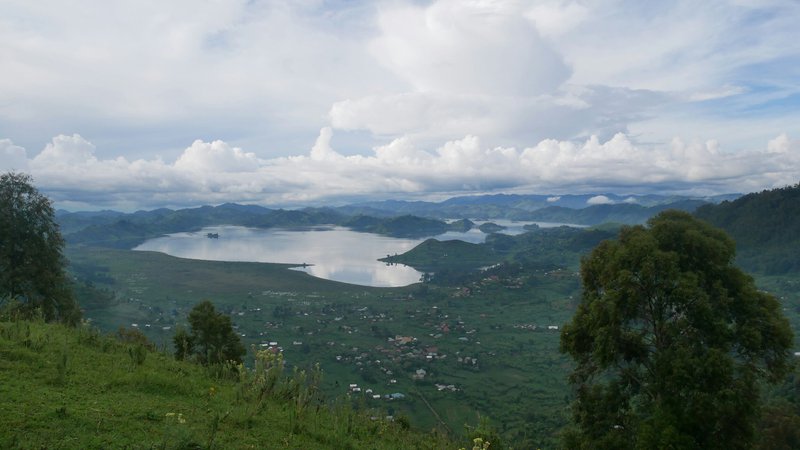
Kisoro arabica coffee - Lake Mutanda
Let's shift to the far South-west of Uganda now in the city of Kisoro at just a few kilometers from the border of Rwanda and RDC.
After a looooonnng journey of matatu (local public bus that stops in every village and even in between to take more and more people ˆˆ), we finally arrive in the farm where we are about to spend one week, the coffee farm of Peter Halerimana's family.
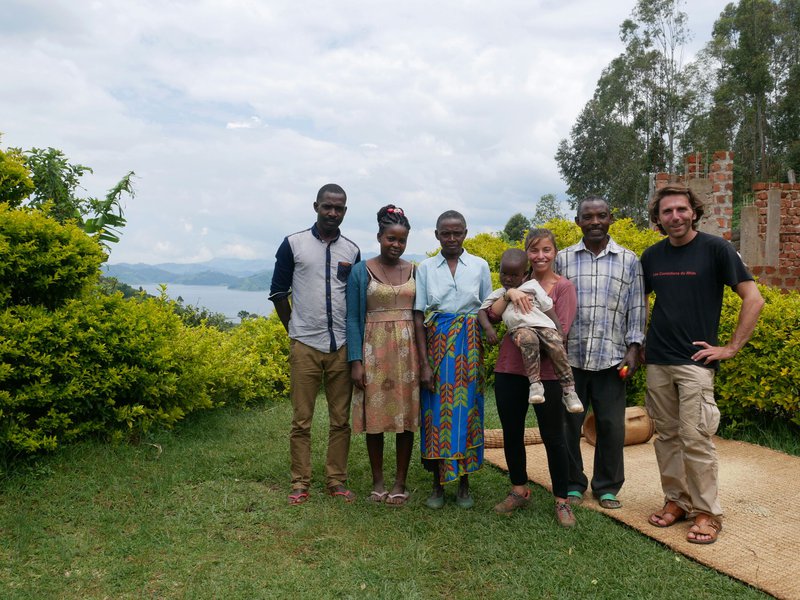
Peter is the owner of 1,000 arabica coffee trees. After working as an engineer in Kampala, he decided to come back to farming 20 years ago. And that's how his story with coffee started.
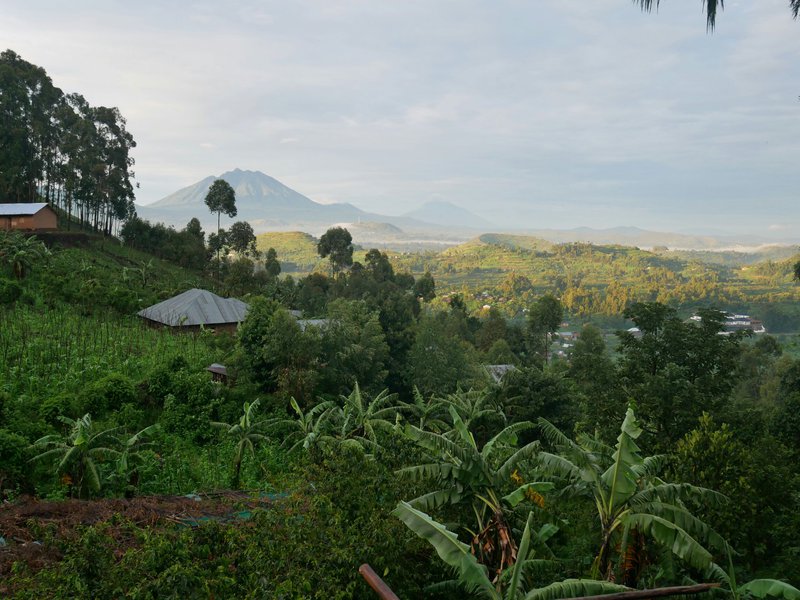
As we climb through the farm located at about 1,900 m.a.s.l, we quickly realize that we are walking on the slopes of a volcano. We recognize indeed the characteristic shape of the lava rock. As soon as we arrive in the farm, we are absolutely stunned by the afar view up to the Lake Mutanda, surrounded by the 3 volcanoes: Mount Muhabura, Mount Sabinyo and Mount Gahinga.
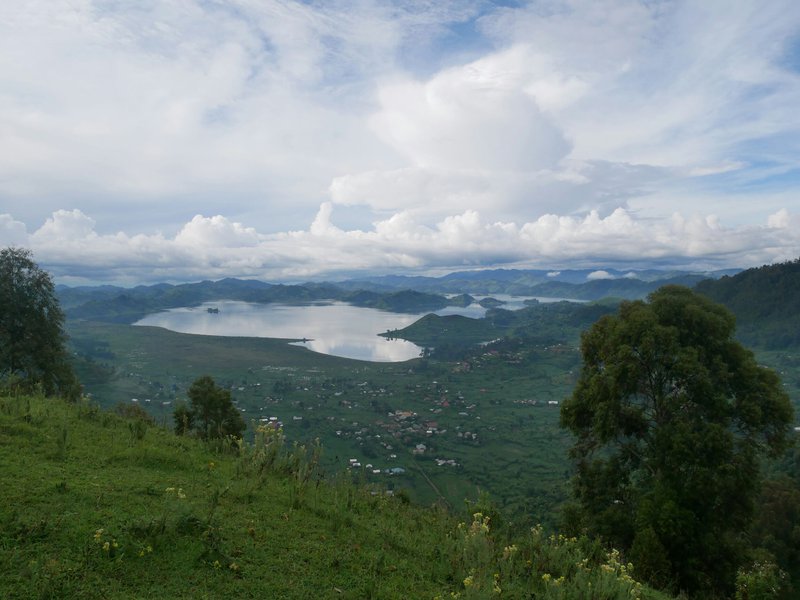
We are warmly hosted by Isabelle, Peter's wife and his son Ronald who is taking care of the farm together with his father. Right after lunch, we are taking part to a coffee tour that takes place in the farm. Kisoro is full of touristic activities and one of them is co-organized by Peter's family. After walking around the farm to see how coffee trees and cherries look like, people are invited to see and try manual pulping, hulling in a mortar,
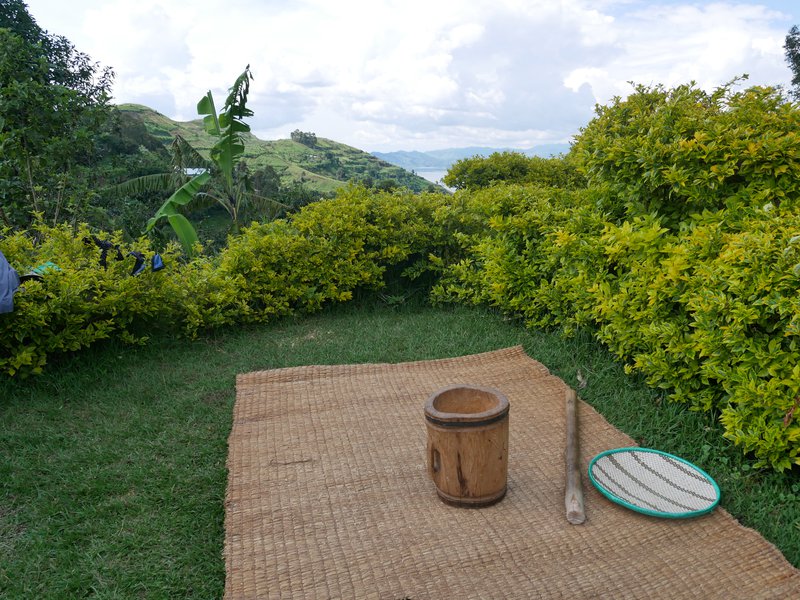
traditional roasting process in a pan and grinding.
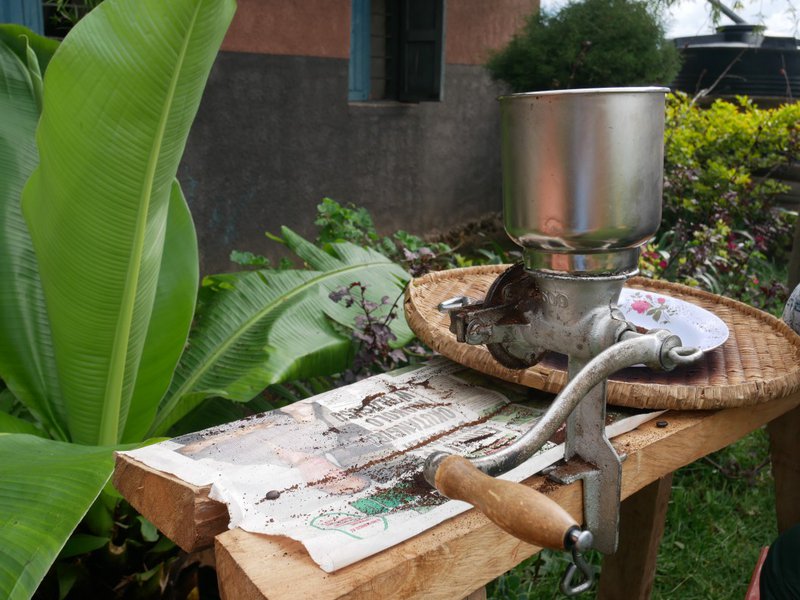
After that, it's time for cupping! From light and medium to dark roast, the guest are invited to taste and choose what they prefer.
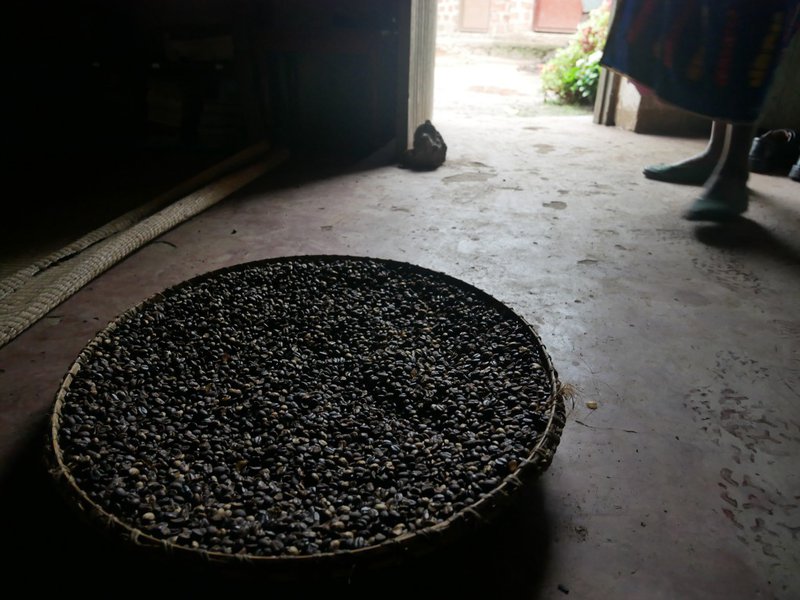
So just like that... in just a couple of hours we have jumped right into the cup of coffee :-)
To be honest, we didn't expect to find such a profile in cup. Nothing to compare with coffee from Sipi. Here we find a lighter body but much more complex acidities, citric and apple notes, but light-brown caramel, spicy vanilla notes... Behind this very simple and traditional preparation of the coffee, we can already feel a great potential.
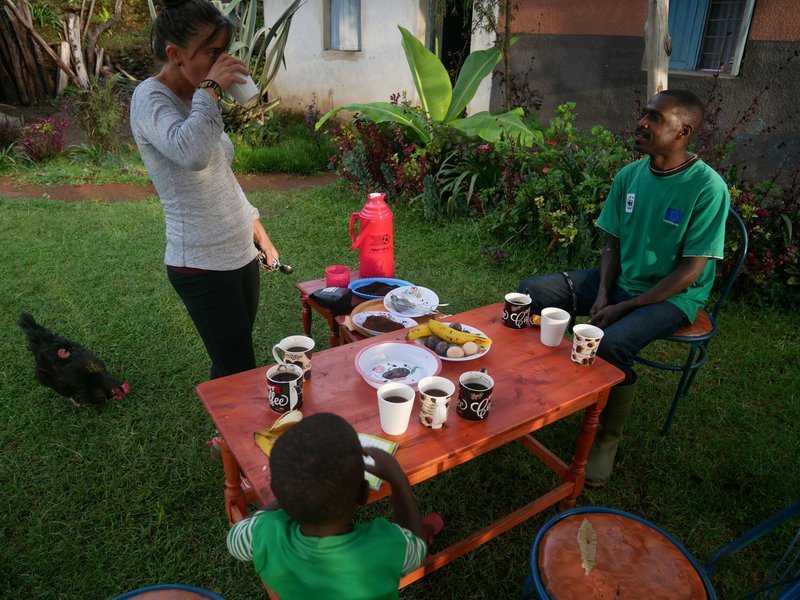
Along the days spent with Peter's family, we will learn many unexpected things about coffee and all its surroundings here on this area.
Firstly, that the harvest period here is not the same as in the rest of the country. As said before, Kisoro is located at the boarder with RDC and Rwanda, in the southern hemisphere. While in the other regions where we have been, the harvest is from October to February approximately, Kisoro's coffee is harvested from March to June.
So in this period, other tasks are waiting for us and it's Ronald that will be our guide for the upcoming days. Ronald explains us first that the farm is managed organically and following the natural balance of the ecosystem.
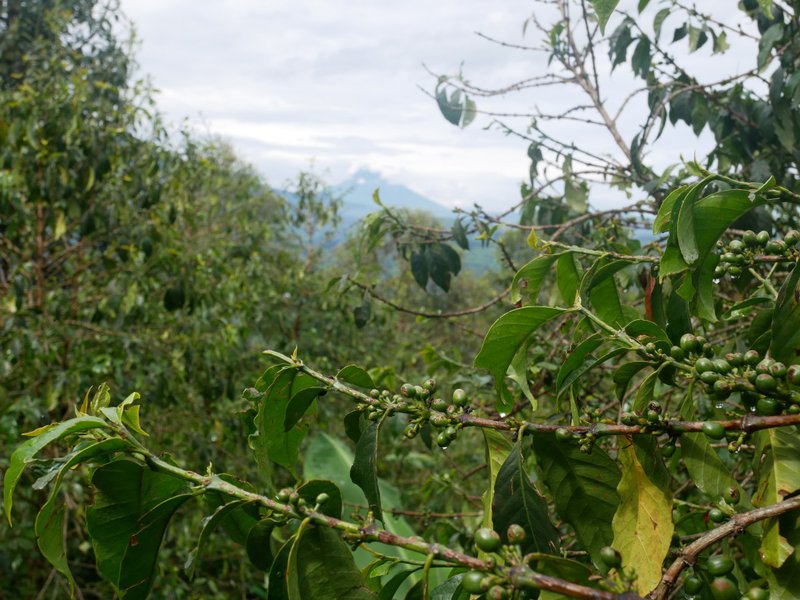
The coffee trees have many neighbours in the farm : beans, peas, potatoes, cassava, yam, onions, vegetables, avocado, banana and matoke (green banana) trees...
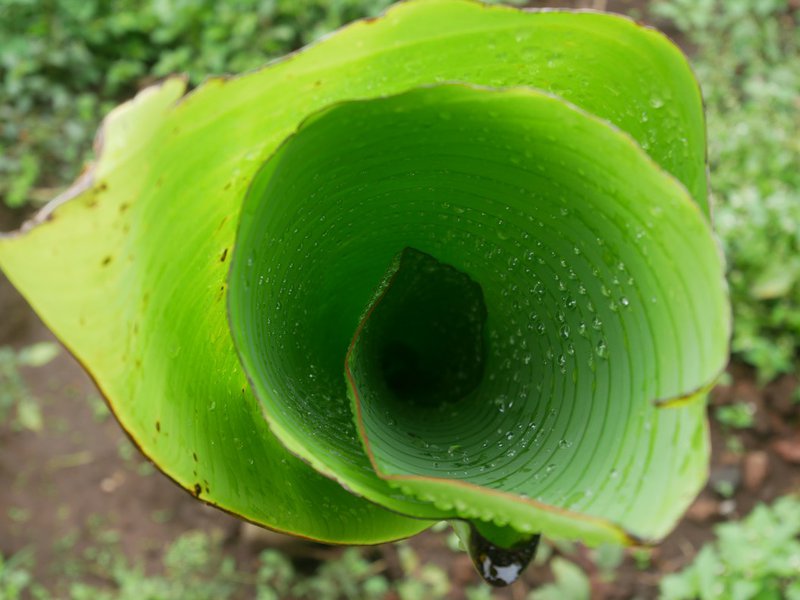
All are introduced at different phases of the coffee tree life, to avoid competition and ensure complementarity with the cash crops.
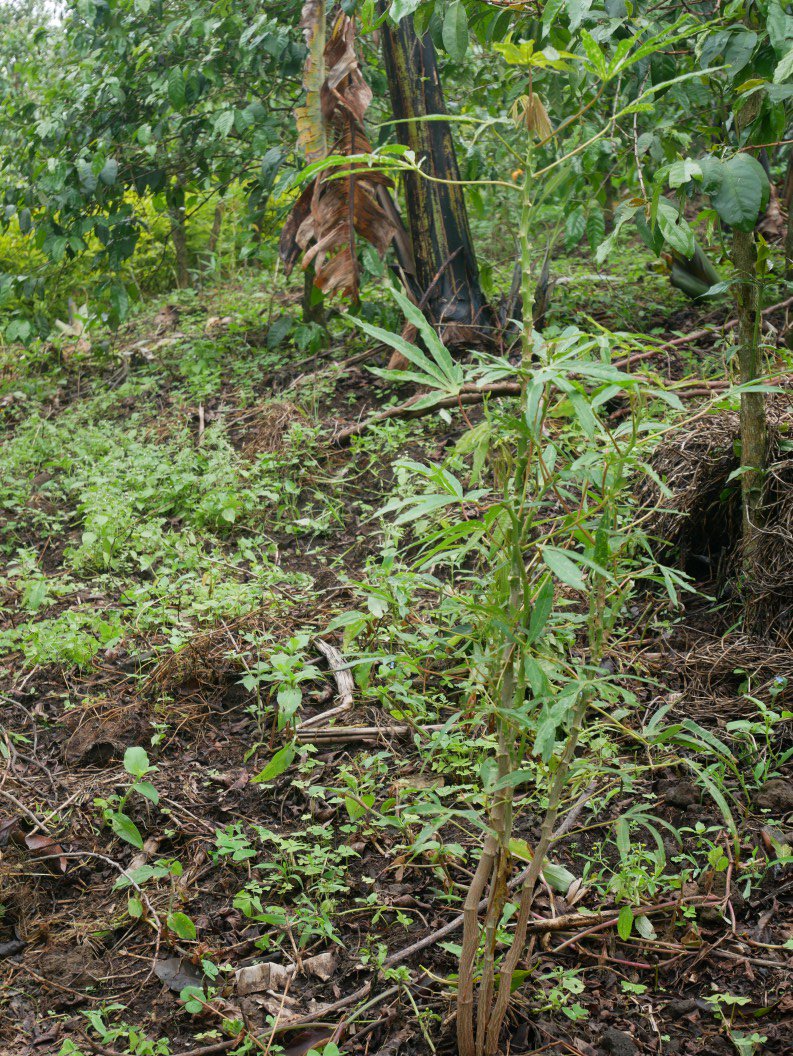
Even the three cows of the farm are here to take care of the coffee.
A special mixture made of their urine, chili peppers, garlic or onions, wood ashes is vaporized every month as a regular treatment to fight diseases and as repellent against parasites.
The farm also hosts a coffee nursery to distribute coffee shoots to the farmers around and favorize the development of the coffee production in the region.
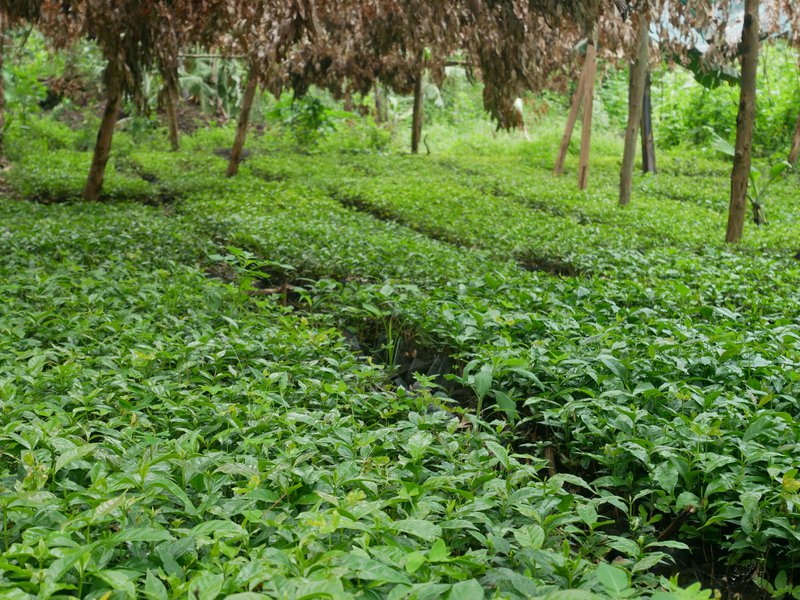
This is done under the umbrella and control of the UCDA - Uganda Coffee Development Authority.
UCDA's "mandate is to promote and oversee the coffee industry by supporting research, promoting production, controlling the quality and improving the marketing of coffee in order to optimize foreign exchange earnings for the country and payments to the farmers."
Hence, UCDA has been encouraging the production of organic coffee and the distribution of coffee plants in the area of Kisoro over the past 10 years.
Farmers can thus come and take some coffee shoots in the nursery. Peter will issue a receipt that will be sent to the local office of the UCDA that will pay a little remuneration for each plant distributed. That's a way for the UCDA to support and control the free distribution of the seedings.
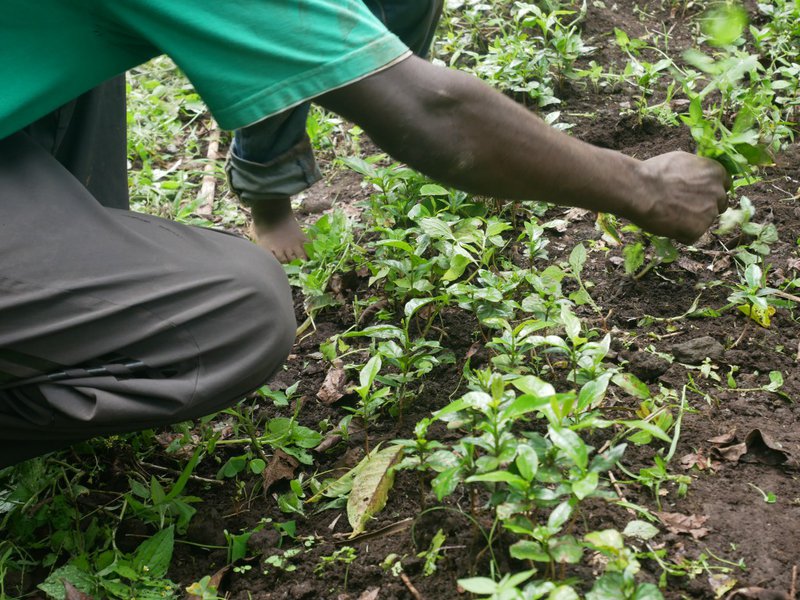
While we were in the farm, we also realized the importance of the weeding into the farm. Coffee, when it's still a baby plant, is in competition with many other plants that will take all the light, the nutrients and water to grow. Without a regular weeding, they will leave no place and no chance to become a deep rooted tree.
And obviously, when you're in an organic farm, there's no Roundup that can make the job for you. The man power here is essential.
And in a farm of 1,000 trees, there's no time for twidling your thumbs.
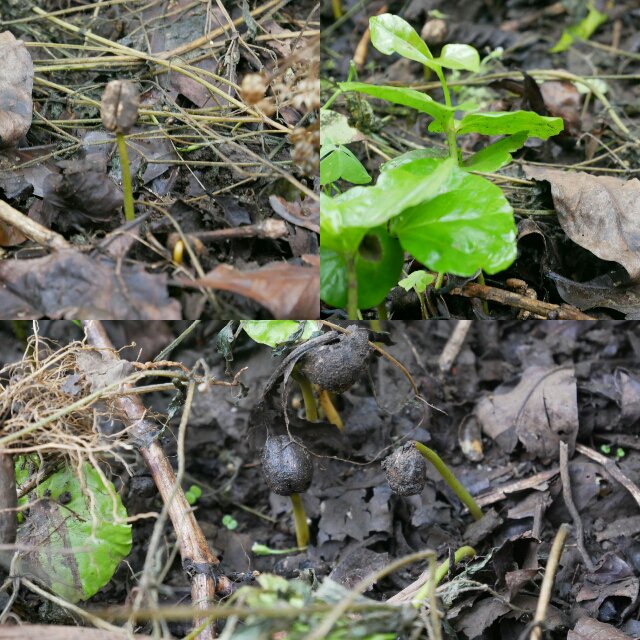
It's hard to summarize the experience of this week within Peter's family. Apart from a few basic words of Rufumbira, the local language of Kisoro, to the basics of organic production and cooking of endemic plants or vegetables from there, we have learnt that producing coffee is a constant and exigent process. It requires method, rigour and patience at every step to get the best of the beans.
But most of all, as far as our passion for coffee is concerned, we have discovered a wonderful region with a coffee full of potential and yet ignored by the specialty coffee industry.
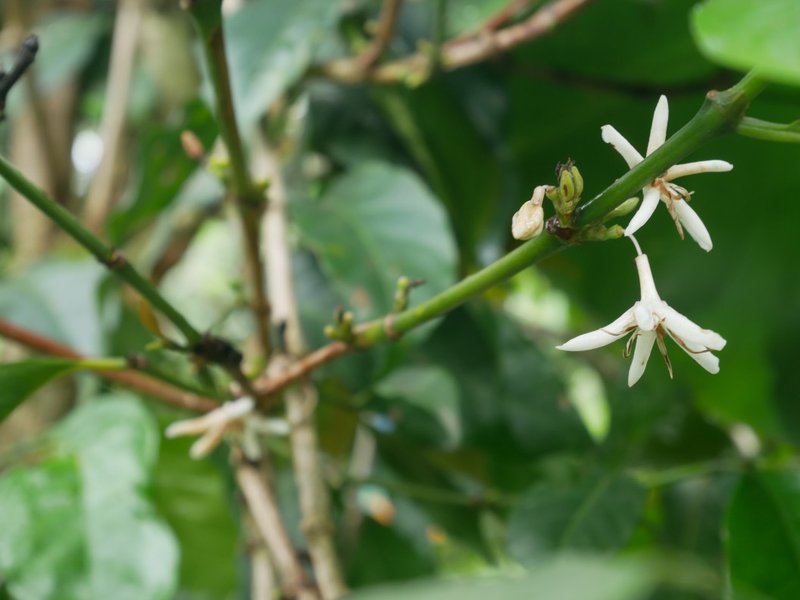
There's so much fascinating work to do there to improve agronomic and processing methods to finally reach a better quality and productivity.
So... Who would like to give a ride?

 Uganda
Uganda Colombia
Colombia Ethiopia
Ethiopia Guatemala
Guatemala Indonesia
Indonesia Kenya
Kenya Mexico
Mexico Philippines
Philippines Tanzania
Tanzania